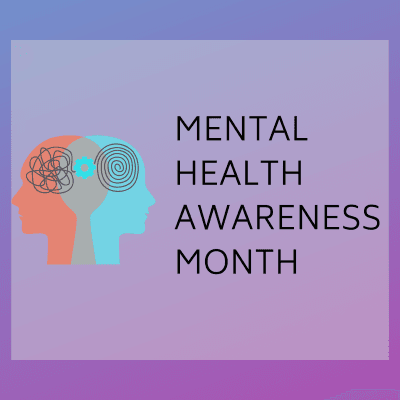
As Mental Health Awareness Month unfolds this May, NYSCADV recognizes the intricate relationship between mental health and domestic violence. Our mental well-being profoundly influences every facet of our lives, from our connections with others to our professional endeavors and overall sense of fulfillment. Yet, domestic violence intertwines with these matters, creating a complex tapestry of challenges.
Mental health is a cornerstone of our well-being, shaping our thoughts, emotions, and actions. Many factors, including genetics, environment, and life experiences, contribute to its delicate balance. Ranging from mild to severe, mental health disorders encompass conditions like anxiety, depression, bipolar disorder, and schizophrenia.
Despite the prevalence of mental health conditions, stigma often serves as a barrier to seeking help. Shockingly, the National Alliance on Mental Illness (NAMI) reports that only 43% of individuals experiencing mental illness receive treatment annually, underscoring the urgency of Mental Health Awareness Month's mission to dismantle these barriers and promote help-seeking behavior.
For survivors of domestic violence, the intersection of mental health and abuse poses unique challenges. Domestic violence, characterized by a pattern of coercive behaviors aimed at establishing power and control over an intimate partner, manifests in various forms, including physical, emotional, and sexual abuse. The repercussions extend beyond physical harm, often inflicting deep emotional wounds that manifest as depression, anxiety, and post-traumatic stress disorder (PTSD).
Indeed, mental health conditions can render individuals more susceptible to domestic violence, while experiencing abuse can exacerbate existing mental health challenges. According to the National Domestic Violence Hotline, staggering statistics reveal that 1 in 4 women and 1 in 9 men endure severe intimate partner violence, sexual violence, or stalking, leading to a myriad of physical and psychological consequences.
Recognizing the symbiotic relationship between domestic violence and mental health is paramount. It necessitates a holistic approach that addresses both issues concurrently. This entails providing mental health support tailored to survivors of domestic violence while integrating interventions that dismantle the root causes of abuse, such as power imbalances and control dynamics.
As we navigate Mental Health Awareness Month, let us not overlook the intersectionality of mental health and domestic violence. Let's advocate for comprehensive solutions prioritizing healing, empowerment, and justice for all survivors.
Here are some resources to assist advocates in their work:
- #MoreThanEnough Campaign, National Alliance on Mental Health - Help raise awareness this May using their social media toolkit.
- NYSCADV Self-Care Toolkit: Recognizing the importance self-care plays in an individual's mental health, NYSCADV has compiled a list of resources for advocates and organizations on topics including self-care, well-being, and resilience. Included are webinars, toolkits, and additional resources to help advocates take care of themselves and support the work that they are doing.
- Family-Centered Toolkit for Domestic Violence Programs, National Center on Domestic Violence, Trauma & Mental Health- The Family-Centered Toolkit helps programs envision and implement an integrated approach that supports parent-child relationships and families with various culturally responsive, trauma-informed, and developmentally sensitive services.
- Resources for Advocates – Trauma-Informed DV Advocacy, National Center on Domestic Violence, Trauma & Mental Health: This training and resource center contains webinars and resources to support domestic violence advocates in helping survivors with mental health, trauma and substance misuse.


